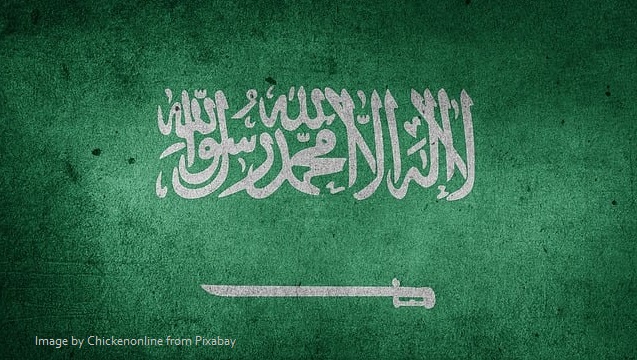Muslims Understand Compassion Differently Than We Do
By Harold Rhode

The idea that compassion is between man and man, not just God and man, barely exists.
The origins of Islam are twofold. It was a revealed religion, but grew out of pre-Islamic Arabian tribal—that is, Bedouin—culture. When Bedouin cultural values conflicted with Islam, Bedouin culture almost always won out. Over time, Islam and Bedouin culture melded into one. It is this combination that constitutes today’s Islamic culture.
The problem with Islam today is not a problem with Islam as a religion but rather Islamic culture. If Muslims choose to pray five or even 50 times a day, that is no concern of ours. But regarding Islamic culture and its view of non-Muslims, we do have a say.
Hebrew and Arabic share many common words and roots, but their meanings often diverge. For example, in both Arabic and Hebrew, the root R-Ḥ-M refers to the womb and signifies compassion. But the understanding of compassion in Judaism is very different from that of Islam.
The opening line of the Quran is: “In the name of Allah, the merciful and the compassionate.” We know what “merciful” and “compassionate” mean in English. It relates to the relationship between God and man, and between man and man.
In Islamic culture, by contrast, compassion is only between God and man. Compassion between man and man is almost absent. This does not mean that individual Muslims do not share our Western concept of compassion, but if they do, it is not derived from Islamic culture.
When a Jew asks God for compassion and forgiveness during the 10 days between Rosh Hashanah and Yom Kippur, he must first approach people he has wronged and ask for forgiveness. The person asked is required to have compassion and forgive. We believe that only by showing compassion to our fellow human beings will God be compassionate and forgiving towards us on Yom Kippur. Islamic culture is quite different.
On Oct. 7, we witnessed the results of this. Among those slaughtered by Gaza Muslims on that day were Bedouin Muslims who were Israeli citizens. They were killed along with Israeli Jews. Unlike the Nazis, who tried to hide their extermination program, the Muslims who slaughtered their fellow human beings—Muslims and non-Muslims—were proud of what they did, as demonstrated by the recordings of phone calls they made to the victims’ parents and friends as the murderers were terrorizing and murdering the recipients’ loved ones.
Why did the murderers also kill other Muslims? Because Muslims care first and foremost about their family, their clan and tribal associations, in that order. This has been true throughout Islamic history. Compassion towards one’s fellow human beings often barely exists.
There are many examples of this phenomenon:
When Hamas, the Iranian regime and Hezbollah send shahids—martyrs—to kill themselves in the name of Allah, they do not choose them from their own families. If they had compassion for others, why would they send other people’s children to their deaths? As we say, put your money where your mouth is.
In Arab culture, blood feuds continue for years without forgiveness or compassion. Perceived “wrongs” must be “righted” by deadly vengeance even if the original insult or crime might have happened generations ago.
Women suspected of dishonoring their families may be killed by family members. In some cases, the woman’s “transgression” is merely talking to a man who is not from the same family. It is not uncommon for fathers and even mothers to tell one of their sons to erase the blot on the family honor by killing his sister. We know of cases in which the son protested and his father told him that if he refused to kill his sister, he would be cast out of the family—which is the only security the son has.
Co-author Harold Rhode once taught a class in the Islamic world about Islamic culture. A female Muslim student wearing a hijab told him that she had to be very careful about talking to a non-relative. At the end of the day, when classes were over, her father personally escorted her home to her village. This student understood very well that if there were any rumors about her, she could end up dead. Moreover, her sisters pleaded with her not to do anything that might dishonor their family and thereby prevent them from being able to marry.
Before the Syrian civil war began in 2011, the country’s population was as high as 22 million. Since then, millions of Syrians have been killed, expelled or displaced to other countries. We have no idea what the population of Syria is today. It could be as little as 6-10 million. We wonder how Syrian dictator Bashar Assad could do this to his “own” people. But Assad doesn’t see most of them as his “own” people. He is a member of the Alawite sect. He is not a Sunni Muslim like approximately 72% of Syria’s pre-war population. To him, these Sunnis are expendable because their existence threatens his regime. Compassion does not enter into the equation.
When Kurdish citizens of Turkey refuse to call themselves “Turks,” the Turkish government has often labeled them “terrorists” to justify imprisoning or killing them. Not for nothing do the Kurds have a proverb: “No friends but the mountains,” expressing their feelings of loneliness, betrayal and abandonment.
When Islam conquers, it conquers by the sword. That is why there is a sword on the Saudi flag. Saudi Arabia’s ruling creed is an extreme form of Sunni Islam. Its flag symbolizes this creed. Beautiful calligraphy on the flag reads: “There is no god but Allah and Muhammad is his messenger.” This simple statement, called the Shahada, is the central principle of the Islamic creed. The sword symbolizes their prophet’s conquest of pagans. The message: Either convert to Islam or die.
When shahids capture enemies, they do not just kill them. They usually make them suffer. Only then does the shahid kill his victim.
In 1947-1948, when Palestinian Arabs fled then-Palestine, their fellow Arabs responded by putting them into refugee camps, where many of them and their descendants still languish. Their “fellow Arabs” never had compassion on them and assimilated them. By contrast, when Jews fled from the surrounding Arab countries, Israel welcomed them, and the fledgling state helped to establish them as full citizens.
In Persian, the closest equivalent to the English phrase “it doesn’t matter” is “it doesn’t bring shame” (eib na-dareh). This means that what you have done will not shame or humiliate you and your family. We rarely think about shame and humiliation, but Muslims almost always have them in the back of their minds. If someone does something shameful or humiliating, others have no compassion for them.
These are just a few examples of how differently we Westerners and the Muslim world understand compassion. Our concepts of compassion and mercy are very different from those of Islamic culture. This, in short, is why so much of the Muslim world is so violent not only towards others, but towards other Muslims as well.
This article originally appeared in the Jewish News Syndicate.
AUTHORS
HAROLD RHODE
Harold Rhode received in Ph.D. in Islamic history and later served as the Turkish Desk Officer at the U.S. Department of Defense. He is now a distinguished senior fellow at the Gatestone Institute.
BENNETT RUDA
Bennett Ruda is a freelance journalist for The Jewish Press and a contributor to the popular Elder of Ziyon blog.
©2024. Harold Rhode. All rights reserved.

This article is courtesy of DrRichSwier.com, an online community of citizen journalists, academics, subject matter experts, and activists to express the principles of limited government and personal liberty to the public, to policy makers, and to political activists. Please visit DrRichSwier.com for more great content.

